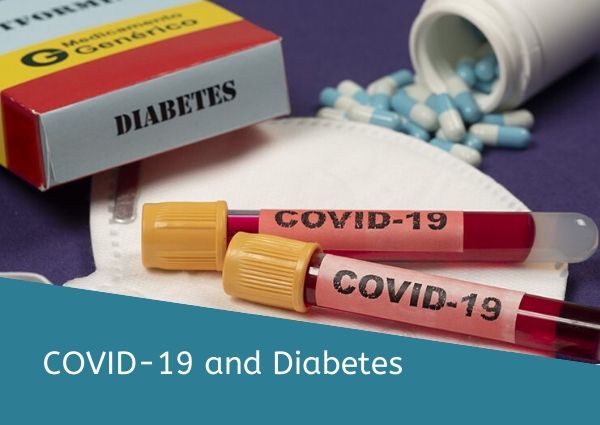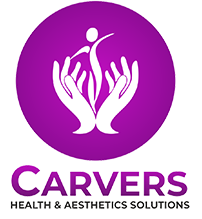COVID-19 and Diabetes

COVID-19 and Diabetes
In the following article we’ll mention an important topic that’s “COVID-19 and Diabetes” let’s discuss within the article given below:
Each and everyone really needs to be careful in order to avoid the coronavirus that causes COVID-19. If you have type 1 or type 2 diabetes, you should be even more cautious.
Your risk of catching the virus isn’t higher than anyone else’s. But you could actually have worse complications if you do really get sick. That’s especially true if your diabetes isn’t well-controlled.
To reduce your chance of getting infected:
- Keep your distance from other people.
- Use good hygiene.
- Keep your blood sugar under control.
Have a plan in place in case you get sick.
Diabetes and Coronavirus
Early studies have actually shown that 25% of individuals who went to the hospital with severe COVID-19 infections actually had diabetes. Those individuals with diabetes were more likely to have serious complications and to actually die from the virus. One reason is that high blood sugar weakens the immune system and makes it less able to fight off infections.
Your risk of severe coronavirus infection is much more higher if you also have another condition, such as heart or lung disease.
If you do get COVID-19, the infection could actually put you at greater risk for diabetes complications such as diabetic ketoacidosis (DKA). DKA happens when high levels of acids called ketones build up in your blood. It can be very serious.
Some individuals who actually catch the new coronavirus have a dangerous body-wide response to it, referred to as sepsis. To treat sepsis, doctors need to manage your body’s fluid and electrolyte levels. DKA causes you to lose electrolytes, which can make sepsis harder to control.
Tips to Avoid Infection
The best way to avoid getting sick is to stay home as much as you can. Under the Americans With Disabilities Act, individuals with diabetes actually have the right to “reasonable accommodations at work.” That includes the right to work from home or take sick leave when you need it.
If you actually have to go out, keep at least 6 feet away from other individuals, and also always wear a cloth face mask. Wash your hands or use hand sanitizer often while you’re out and when you get home.
Also always wash your hands before you give yourself a finger stick or even an insulin shot. Clean each and every site first with soap and then with water or rubbing alcohol.
To protect you, each and everyone in your house should actually wash their hands often, especially before they do specific task like cook for the family. Don’t share any utensils or other personal items. And if anyone in your house is actually sick, they should just stay in their own room, and as far as possible from others. They should actually wear a cloth face mask when you really have to be in the same room.
Your COVID-19 Diabetes Plan
Social distancing and shelter-in-place rules may make it harder to get the supplies you need. You should stock up on enough goods to last you for a couple of weeks, in case you actually get quarantined.
Make sure you have:
- Enough food, specifically healthy carbs such as whole-wheat crackers, vegetable or noodle soups as well as unsweetened applesauce
- Simple carbs such as honey, fruit juice, sugar-sweetened soda, or even hard candies in case your blood sugar level really dips
- The maximum number of refills you can get of your insulin and other medications
- Extra glucagon and ketone strips
- Phone numbers for your doctors and health insurance company
Some of the private insurance companies now actually cover the cost of telehealth visits. So if you have any questions for your doctor, you can actually ask by video chat or phone instead of going into the office.
When you talk to your doctor, ask:
- How often to actually check your blood sugar as well as ketones
- How to really adjust your diabetes medicines if you’re actually sick
- What cold as well as flu remedies are safe for you to take
What to Do if You Get Sick
If you start feeling sick, stay home. Check your blood sugar more often than usual. COVID-19 can actually reduce your appetite as well as cause you to eat less, which could further affect your levels. You also need more fluids than usual when you’re sick. Keep water close by, and drink it often.
Some over-the-counter medicines that actually relieve virus symptoms such as fever or cough can actually affect your blood sugar levels. High doses of aspirin or ibuprofen can lower blood sugar levels. Acetaminophen can cause falsely high readings on a continuous glucose monitor. Many liquid cough and cold medicines are high in sugar, which can raise your blood sugar levels. Before you actually take them, check with your doctor or even diabetes team. Tell your doctor if you’ve taken them and your blood sugars are out of control.
Call your doctor if you get coronavirus-like symptoms such as a dry cough, fever, or shortness of breath. Have your most recent blood sugar as well as ketone readings available to share with your doctor at anytime.
Get medical help right away if you have:
- Moderate or large ketones
- DKA symptoms such as tiredness, body aches, weakness, vomiting, or belly pain
- Severe shortness of breath
